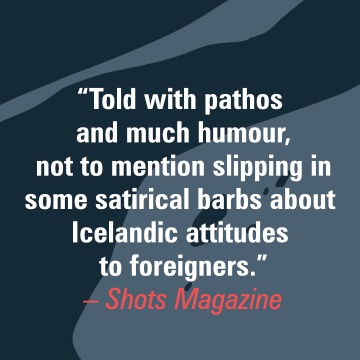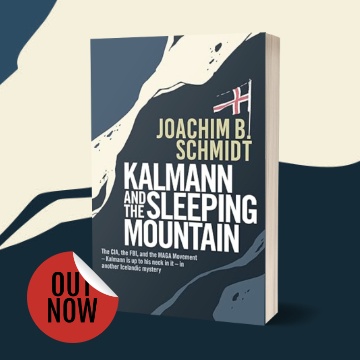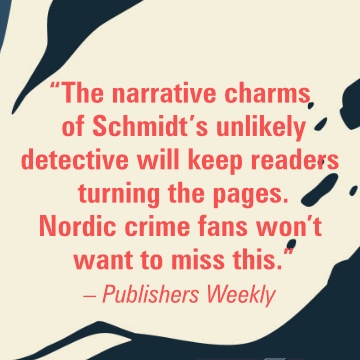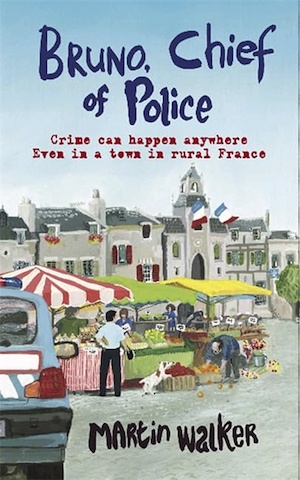
Millions of UK and US readers have basked in the sunny French countryside via the books by the late Peter Mayle, author of 1989’s A Year in Provence. If you’re one of them, then the more recently written Bruno, Chief of Police series by Martin Walker will produce similar results. With a police escort, you’ll visit a place where a meal is something to be lingered over, described in mouth-watering detail, and a glass of wine is to be savoured, even if it’s the not-all-that-delicious small batch created by a hillside neighbour.
British author Martin Walker’s series of 17 police procedurals began in 2008 and retains the witty, warm-hearted and utterly charming feel that Mayle exemplified, and shows that escalating violence is not the only way to take hold of readers. Bruno, Chief of Police, is the series opener and has been reprinted under the title Death in the Dordogne.
The chief’s actual name is Benoît Courrèges, but everyone calls him Bruno. He’s found that the small town of Saint-Denis, located on the Vézère River in the Dordogne – some 450 miles west and a bit north of Provence – is the perfect place to recuperate from his rough years serving in Bosnia with the French Army as part of the UN peacekeeping force.
Bruno uses a cell phone, relies on DNA testing and uses other up-to-date forensic methods, but his real skill is understanding the psychology and behaviour of Saint-Denis’s residents. He has an acute understanding of what methods will and will not work in getting to the bottom of crimes committed there. Big-city police authorities and the head of the local gendarmerie are ever convinced they know best how to handle situations that arise. But, faced with Bruno’s local intelligence, they’re usually defeated in a most gratifying, often amusing, way – such as a gendarme’s attempt to arrest a boy for possession of a potato – on market day, no less – which runs quickly aground.
Walker weaves significant contemporary concerns into his rosy descriptions of markets, cafés and wineries. For example, market day offers the opportunity for rule-obsessed EU inspectors to search out cheeses, pâtés and meats that, despite new restrictions, continue to be produced and sold in the same way as was done by the sellers’ parents, grandparents and who knows how far back.
Authenticity can get complicated. A woman cited for selling eggs without the required date stamp actually buys her eggs at the supermarket, washes off the dates and packages them up with a bit of straw and chicken excrement to sell to tourists as real country eggs. And tourists there are, with all their agendas and cultural mishaps. The Dordogne is a magnet not just for travellers interested in beautiful rural surroundings, but also for visitors who want to see its famous prehistoric cave paintings.
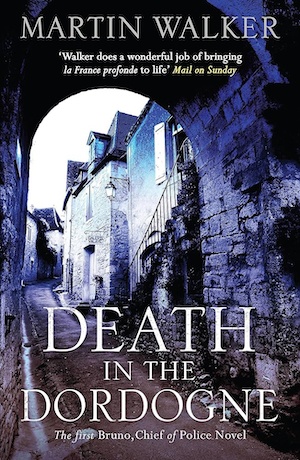
Intruding on this idyllic existence is a murder, rare for the area. In his first case, Bruno is called to the remote cottage of an elderly Algerian man, a decorated war veteran, father and grandfather of respected Saint-Denis residents, who has been found dead with a swastika carved in his chest. A story with such a strong political undertow gives plenty of opportunity to explore residents’ attitudes about immigrants, social cohesion, wartime behaviour and the like, which give the story considerable weight.
Bruno is more than the town’s chief of police. He coaches the local rugby team, as well as the town’s children who want to play tennis. The latter activity, he believes, is a good way to get to know the next generation, whose members soon will be entering the risk-prone years of adolescence. He travels the area’s indifferent roadways to visit farmers and their families, keeping tabs on their concerns and making numerous friendships among them. This helps him gain their cooperation when needed, an advantage outside investigators simply don’t have.
Being a Frenchman, he appreciates an attractive woman, even if he doesn’t want to complicate his life with local love affairs. A visiting police detective from another part of France seems a much more agreeable alternative. And since she’s taking up a post in Paris, she won’t necessarily be in his way as new plots develop. Good food too is a preoccupation. Bruno is an excellent, if unfussy cook, and partakes of the best his region has to over, including the truffles found in the woods behind his house. Naturally, he has a loyal basset hound, Gigi, to keep him company and strike out with him on his hunting expeditions.
Like Kurt Wallander, he’s a bit of a loner, but these novels are lighter in tone and gentler in content than Henning Mankell’s series, set in southern Sweden, while still delivering page-turning mysteries. The series has been translated into 15 languages and has proven popular in German and Dutch, though it seems French publishers so far have resisted.
Bottom line: Walker’s mysteries are a pleasant way to spend a few hours. More than that, the investigations he’s designed dig into many facets of rural life as it has been and as it changes. Not all of them are pretty, and the appearance of simplicity is only on the surface. Along the way he introduces you to a cast of interesting local characters and captures for your imagination a few idyllic moments. You’re very likely to want more of both.
Walker is a former foreign correspondent for The Guardian, has written a number of nonfiction historical and political books and lives in France’s Périgord region. You can watch a video in which he’s interviewed by Dr Noir, here.








